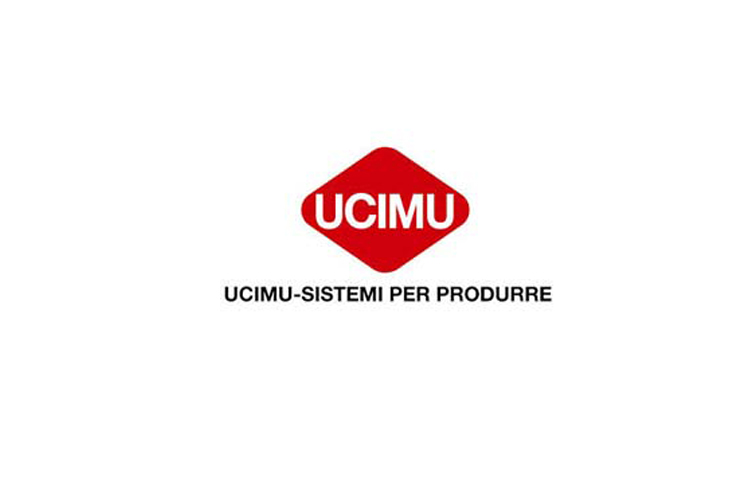Mchine tool orders: Moderate increase in the first quarter 2015 (+2.2%) a decidedly positive collection of orders in the domestic market (+15.4%) foreign markets are stationary (-1%)
In the first quarter of 2015, the index of machine tool orders, processed by Centro Studi & Cultura di Impresa (Studies Dept. & Business Culture) of UCIMU-SISTEMI PER PRODURRE, registered a 2.2% growth in comparison with the same period of the previous year.
Therefore, there has been an extension to six consecutive quarters of the positive trend reported by the index of machine tool orders collected by Italian manufacturers, who, as recorded all over the year 2014, showed the best performances in the domestic market in this first quarter, too.
The index of domestic orders indeed marked a new upturn, in the amount of 15.4% compared with the period January-March 2014. The index of orders collected abroad remained stationary (-1%).
The analysis of data, conducted by the method of the “moving average”, – which surveys the trend of the last four quarters, thus allowing to reduce the effect of seasonality determined by the different collections of orders in the different quarters, – is currently showing a value of 119.3 (basis 2010=100).
“The year 2015 is thus opening with good expectations for the Italian manufacturers who – pointed out Luigi Galdabini, President of UCIMU-SISTEMI PER PRODURRE – while remaining loyal to their own traditional inclination to the export business, have been able to fully exploit the recovery of the Italian demand for production systems”.
The United States, China, Germany, Russia, France, Turkey, Poland resulted the most important outlet markets of the “Made by Italians” in the sector in 2014; moreover, Italy has finally gone back to investing again in machine tools supported by the New Sabatini Law.
“The official data presented by the Ministry for the Economic Development – stated Luigi Galdabini – are proving that the New Sabatini Law generated 1.6 billion euro investments (not only in machine tools) in the period between March 2014 and March 2015. Considering that the value of investments concerning the submitted applications amounts to 2.3 billion euro, it is reasonable to suppose that, already in the short term, this datum will be likely to increase: this will also be due to the decision included in the “Investment Compact”, which allows to obtain a state subsidy on the interest paid also by using autonomous funding on loans granted by banks and by leasing companies, without utilizing the funds offered by the public financial institution Cassa Depositi e Prestiti”.
“Another very interesting provision – added the President of UCIMU-SISTEMI PER PRODURRE – is the Bonus Macchinari (Machinery Bonus) that enables the tax deduction of the investments in high-technology machinery. In order to make this measure really effective, the Italian manufacturers are asking to considerably increase the 15% deduction, which is currently applied to the part exceeding the average amount of investments made by the company in the last five years; they also ask to apply it to all investments made in the next three fiscal years. In relation to this measure, they also ask to separate the due date for order collection, now fixed within 30 June, from that of machine delivery. This should be postponed till 31 December 2015 in order to facilitate the Italian manufacturers in acquiring orders in the first part of the year, as they are generally suppliers of tailor-made machines, for whose production many months are needed”.
“This said, however it is necessary to stress again the need for specific measures capable of supporting, in a structured way, the relaunch of the domestic market and of the Italian manufacturing sector. A complementary action to the New Sabatini Law should be the liberalization of depreciation on purchased capital equipment and the revision of coefficients for its calculation, dating back to 1988”. In this connection it could be interesting to consider the provision announced in France which offers the possibility of depreciating 140% of the value of plants or machines purchased in the twelve months following the entry into force of the law provision”.
“The recovery of machine tool consumption in Italy – stressed Luigi Galdabini – is indeed an issue of interest not only for manufacturers, but, on the contrary, it is and must be more relevantly among the priorities of our country, whose manufacturing industry is working with more and more obsolete and less efficient production technologies. To avoid a loss in competitiveness in our country system, we need to consider an incentive programme to support the replacement of obsolete machinery. The provision, which was favourably considered by the Ministry of Economic Development, could actually give a shake to machinery consumption, but, most of all, it would encourage the necessary modernisation of production plants, in response to the companies’ requirements of higher productivity and of compliance with stricter and stricter regulations in terms of energy saving and improvement of safety standards at the workplace”.
“The positive trend of orders in the domestic market – concluded Galdabini – proves that the recovery of the Italian manufacturing industry has really started. Now the enterprises have to be stimulated to improve their facilities, in order to be able to face the challenges of the future, starting from the great international meeting scheduled to take place next autumn, EMO MILANO 2015, the world exhibition of machine tools, robotics and automation hosted at fieramilano from 5 to 10 October”.


